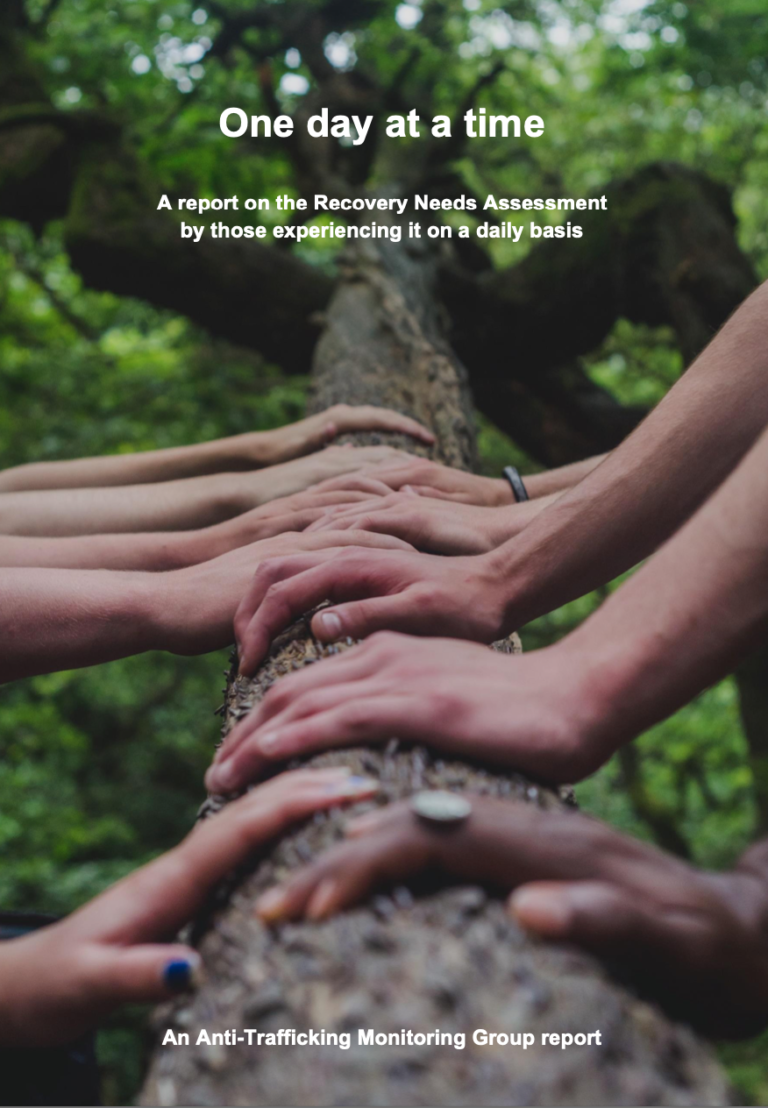This report is the first independent review of the Recovery Needs Assessment, the mechanism through which, since 2019, survivors of modern slavery and human trafficking in England and Wales have their support needs assessed and provided for. The research team includes people with lived experience of the RNA.
The RNA is conducted after a person has been confirmed as a victim of modern slavery. It allows a support worker within the Modern Slavery Victim Care Contract (MSVCC) to work with a survivor to develop recommendations for support and for the Home Office to assess and provide for the survivor’s ongoing recovery needs arising from their modern slavery experiences. RNAs are time limited and a survivor may need to submit multiple assessments to continue receiving support.
The RNA forms part of the UK government’s framework for combatting modern slavery and trafficking, and for identifying and supporting survivors. The UK has domestic and international legal obligations to adhere to, enshrined primarily in the Council of Europe Convention against Trafficking in Human Beings and the UK Modern Slavery Act.

